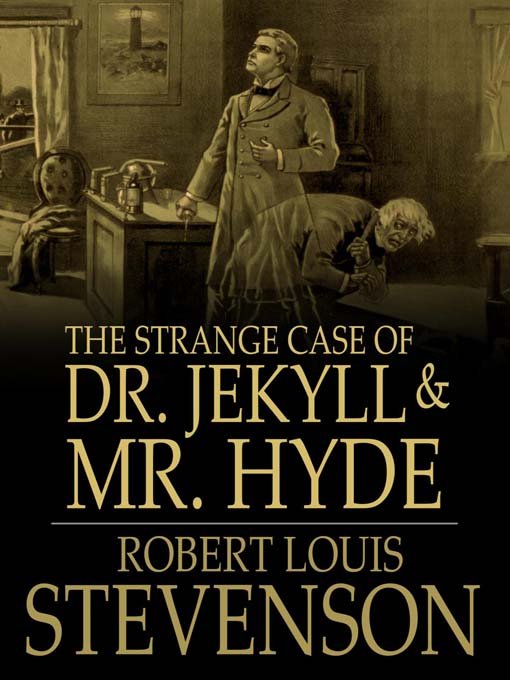
The Strange Case of Dr. Jekyll and Mr. Hyde
by Robert Louis Stevenson
Read for free at Project Gutenberg
In Robert Louis Stevenson's work, The Strange Case of Dr. Jekyll & Mr. Hyde I believe the conflict between Dr. Henry Jekyll and Edward Hyde to be Jungian rather than a simple split personality. One of Carl Jung's precepts about the human mind is that it exists in primarily two parts, namely that of the Psyche and the Shadow. The Psyche represents the conscious mind and ingrained and learned behaviors, while the Shadow represents more primal urges and that which the Psyche represses. In the work, it is rather obvious that Dr. Jekyll represents the Psyche, with Hyde representing the Shadow. It is even laid out in this way during Jekyll's letter of confession where he admits that Hyde represents all that he denied himself and repressed in order to keep up appearances.
It is also Jekyll's letter of confession at the conclusion of the work that lends credibility to the Jekyll/Hyde conflict being more than a simple split personality. A split would imply one personality, namely Jekyll or Hyde, being in control with the other completely oblivious to what was occurring. Instead, it is admitted by Jekyll himself in his confession that he was fully aware of himself and retained all memory. It was the freedom of a new identity that allowed him to exercise all of his repressed urges without fear of consequence.
As the story reaches its conclusion, we learn that Jekyll is able to spend less and less time as Jekyll, and more time as Hyde, often against his conscious will. Again, this is where the Jungian conflict comes into play. Through repeated indulgences of his Shadow, what his Shadow originally represented, namely his repressed urges, were no longer chained by his Psyche. Essentially, what began as his Shadow was melding into his Psyche, with only the most depraved acts being left in the dark corners of his mind. Jekyll is forced to become Hyde, because his mind has convinced itself, consciously or not, that he wants to be Hyde rather than Jekyll. The old propriety of his Psyche cannot stand against his want and willingness to slake his desires. The morality that Jekyll thought he had turns out to be nothing more than posing for society's sake, as the only thing that causes Jekyll to regret his actions as his Hyde identity is the certainty that he will be punished with hanging when he finally takes a life. Even in his “Jekyll personality”, when faced with his actions as Hyde, Jekyll is more afraid of the consequences of his actions rather than repulsed by his casual murder of another human being.
Even when Jekyll attempts to “quit” being Hyde by re-entering the society and life that he had built of before, he finds himself longing for the freedoms he had as Hyde to indulge his passions, and after a time “rewards” himself for his two months of good behavior with a night out as Hyde. If this is a split personality with no memory of the events that would transpire, why would he let let out the Hyde personality when he could just as easily indulge such passions as Jekyll (provided he paid for the discretion). Instead, it was rather for the freedom to act out on any urge without any fear of darkness being brought to the doorstep of Dr. Henry Jekyll. After having repressed himself for two months after having tasted the “forbidden fruit”, it is understandable that he would go to such extremes as Hyde, which causes his eventual downfall, and suicide to avoid the gallows.
When considering my own writing, I found it important to consider the psychology of my main character, particularly in respects to his Psyche and Shadow. What does he repress, what are his urges, and most importantly, what is the function of his morality? In a way, Jekyll is given the same freedom that magic can afford. The ability to slake your urges without any real fear of consequence, at least at first. It makes me ask what sort of moral foundation my character has, whether he refuses to commit evil acts because of fear of punishment, because of some sense of right and wrong, or perhaps even because he just doesn't want to or feel like it. It is through examining these conflicts and questions that I believe will make a deeper and richer character.